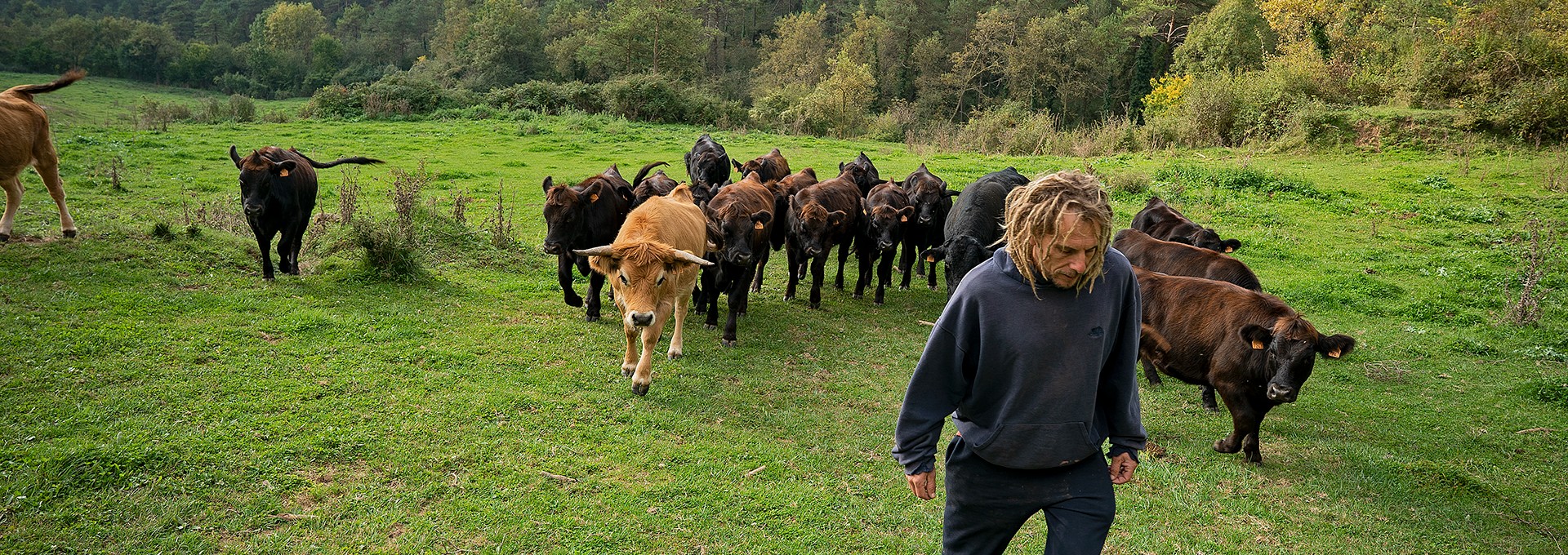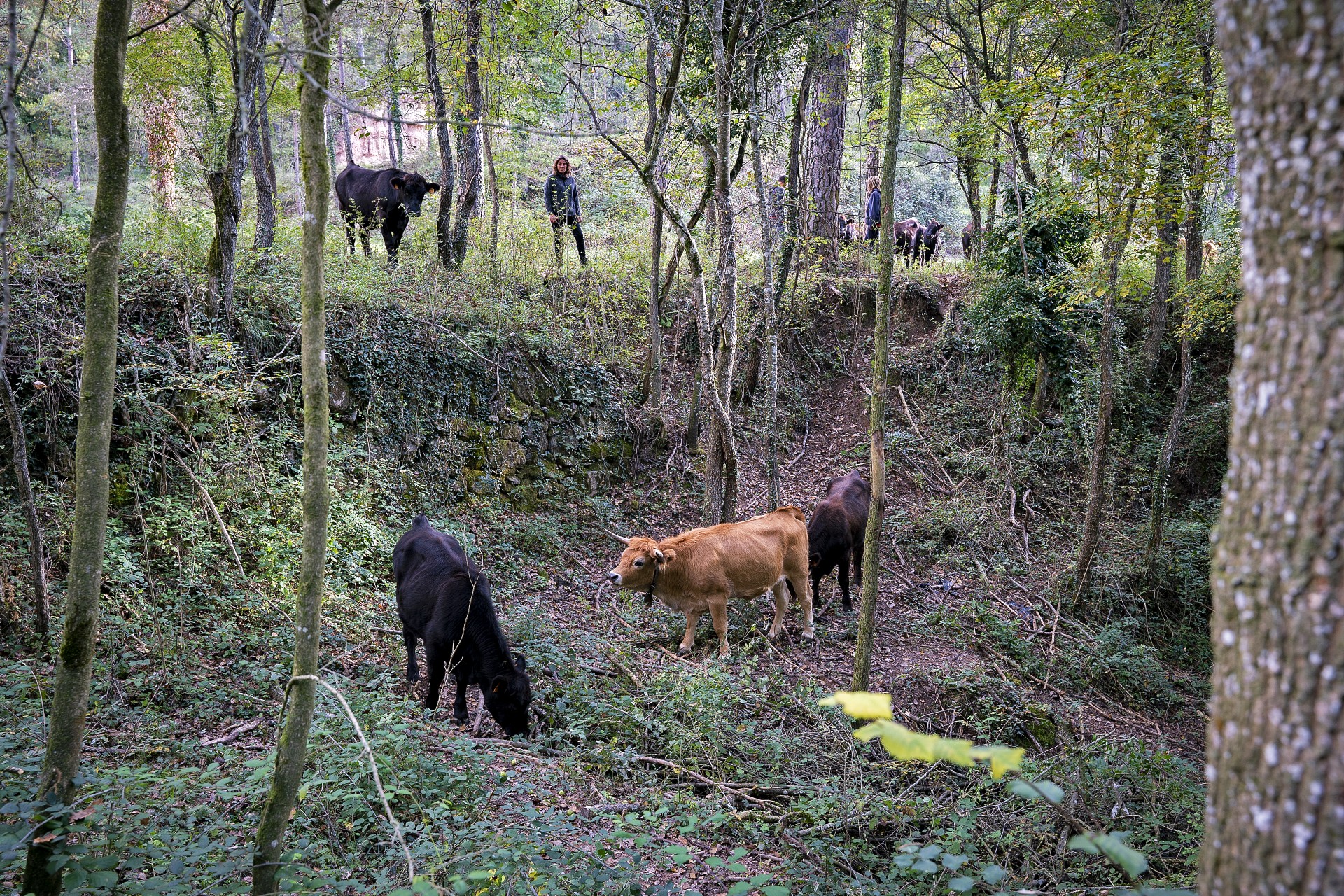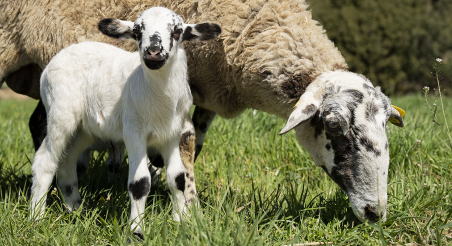The 2022 Agri-Food Technological Innovation Awards (PITA) have recognised the importance of the virtual fencing system promoted by the Barcelona Provincial Council. Xavier Quirante, who participated in the first pilot test of this technology to control herds through mobile phones and eliminate traditional electric fences, was awarded as a finalist in the Agricultural Holding category, receiving a prize of €2,000. The award ceremony took place last Wednesday, 26 April, in Manlleu, as part of the Agri-food Innovation Day.
The PITA awards recognise innovations that enhance the competitiveness and sustainability of the agri-food sector. These awards highlight agricultural companies, agri-industries, and young entrepreneurs who apply new technologies, optimise processes to boost competitiveness, protect the environment, and promote good production practices. At the same time, they ensure economic, quality, ergonomic, safety, and sustainability benefits in their operations.
A pioneering project in Osona
La Casanova, the awarded farm in Osona, is a small grazing cattle business run by Xavier Quirante and Mercè Oms in the forests of Sora. The farmers practice animal rotation as a tool to improve soil structure and fertility. The new virtual fencing system allows them to better plan their work and prevent overgrazing.
Currently, 35 of their cows wear GPS-enabled collars, and the data collected is regularly analysed to track the animals’ locations, move the herd remotely, and help preserve the landscape. Moreover, the farmers receive mobile alerts if an issue arises, such as an animal straying outside the designated grazing area.
Invisible fencing
The livestock control system being tested at La Casanova is seen as the future of extensive grazing. Part of the BCN Smart Rural strategy, this programme involves fitting animals with GPS collars and defining the grazing area with virtual fences that are drawn on a mobile phone. If an animal approaches the boundaries set in the virtual map, the collar emits a distinctive sound to warn it to stop. Should the animal ignore the warning, the sound is followed by a small electric impulse that encourages it to halt. The shock is harmless and much milder than what the animal would receive from an electric fence.
This remote herding solution eliminates the need for physical fencing and allows shepherds and farmers to control their animals using their mobile phones. In addition to making farmers’ work more efficient, the system places significant emphasis on ensuring animal welfare. Currently, it is only authorised for managing cows, sheep, and goats. The technology was developed by Nofence, a Norwegian company founded by livestock farmer Oscar Hovde Berntsen. It allows animals to graze freely in fields and forests, improving their diet and overall quality of life.
Managing livestock through virtual fencing also helps farmers achieve more sustainable forest management, as the animals can reach more remote areas, reducing the amount of flammable vegetation in the forests. Reducing forest biomass and creating gaps in the vegetation is crucial to lowering the risk of large wildfires.
Fire-resistant forests
As the sixth BCN Smart Rural Data Bites pointed out, the province of Barcelona is nearing the point where it has enough livestock grazing extensively to reduce the amount of flammable vegetation accumulating in the forests, ensuring more effective conservation. However, the report also indicated that more livestock should be spread across the territory, as 78% of extensive grazing operations are concentrated in just two of the twelve counties in Barcelona: Osona and Berguedà. With over 514,000 hectares of forest and the growing reality of global warming, the risk of large wildfires is significant. This concern is shared by the Barcelona Provincial Council, which views extensive livestock farming as a key tool for protecting the region’s forests.
Sonia Callau, coordinator of BCN Smart Rural, explains, "If this virtual fencing system and GPS collars become widespread, livestock farmers in the province will be able to manage grazing in a more sustainable way while also protecting and regenerating the natural environment. Moreover, it would help improve work-life balance for farmers and attract new entrepreneurs to the sustainable food sector."
For more information about this pilot test, please contact Pere Navarro, a land engineer from the Agrarian Territorial Directorate of the Barcelona Provincial Council.




